US hasn’t given Pacific the support it deserved, Kamala Harris tells forum
Kamala Harris aimed to draw a contrast with the approach taken in the region by Beijing, in an effort to head off China’s influence.
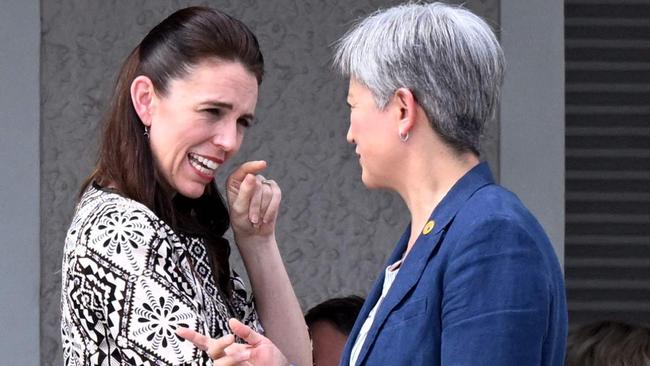
US Vice President Kamala Harris has told Pacific Island leaders via a virtual address that America will strengthen the international rules based order and respect the sovereignty and territorial integrity of Pacific nations.
The comments, aimed at drawing a contrast with the approach taken by Beijing without directly referencing China, went to the importance of nations conducting their affairs “free from aggression or coercion.”
“At a time when we see bad actors seeking to undermine the rules based order, we must stand United,” she told the Pacific Islands Forum in Fiji.
“We must remind ourselves that (by) upholding a system of laws, institutions and common understandings, this is how we ensure stability and indeed prosperity around the world.”
Ms Harris said that relations between the US and the Pacific would take place in the spirit of openness and transparency. She said the future of the Pacific Islands and the US was inextricably linked with their historic bonds “going back generations” through shared fights for “freedom and liberty.”
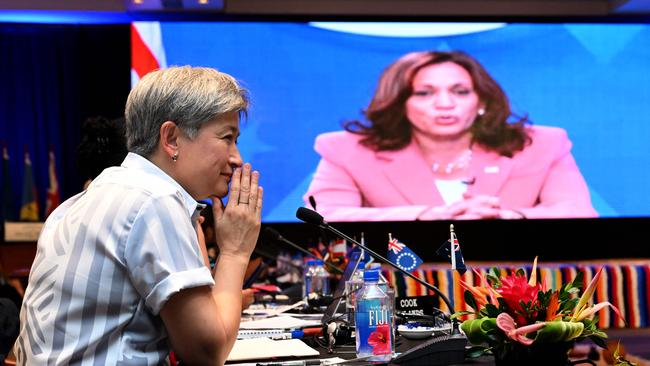
Ms Harris said that America wanted to deepen its partnership with the Pacific, conceding that the Pacific Islands may not have previously “received the diplomatic attention and support that you deserve.”
“We are going to change that,” she said.
“The US has an enduring commitment to the Pacific Islands which is why President Joe Biden and I seek to strengthen our partnership with you.”
The speech is accompanied by a series of new actions being taken by the US to reflect the elevated priority it attaches to the region, with America to establish diplomatic outposts in Kiribati and Tonga while reopening its embassy in Solomon Islands which has signed a new security agreement with China.
The White House has also confirmed the US government will release its first national strategy on the Pacific Islands and appoint a designated envoy to the PIF to “increase our overall diplomatic footprint across the Pacific Islands”.
US Peace Corps volunteers will also “soon return to Fiji, Tonga, Samoa and Vanuatu”, while America also confirmed a re-established US Agency for International Development would “take steps to expand its presence in the Pacific to improve close co-operation with its host country partners”.
Fijian Prime Minister Frank Bainimarama responded to Ms Harris’ comments by saying the US had “long been a Pacific power.”
“America is prepared to become a Pacific power like never before,” he said.
Mr Bainimarama also welcomed the request from the Biden Administration from
congress for up to $60m per year for the next ten years to assist with economic development and ocean resilience in the Pacific, describing it as a powerful commitment.
US pushback in the Pacific
The US has joined Australia’s effort to push back against the rise of Chinese influence in the Pacific with a multimillion-dollar package of funding for island nations and a ramped-up diplomatic presence in the region.
Vice-President Kamala Harris told Pacific leaders the US will triple funding to $US60m ($88.5m) a year over the next decade for economic development and increase “ocean resiliency” by combating illegal fishing.
The US will also establish outposts in Kiribati and Tonga and Ms Harris says that the superpower is “on track” to reopen its embassy in Solomon Islands.
The US announcement came ahead of Anthony Albanese landing in Fiji for the PIF, and as Foreign Minister Penny Wong on Tuesday met with New Zealand leader Jacinda Ardern and Fijian Prime Minister Frank Bainimarama in the capital, Suva.
Deputy Prime Minister Richard Marles – who is in the US on a four-day trip – also said Australia and the US must step up their engagement and military capabilities in the Pacific to avoid a “catastrophic failure of deterrence”.
“We worry about use of force or coercion to advance territorial claims, as is occurring in the South China Sea, and its implications for any number of places in the Indo-Pacific,” Mr Marles said in Washington.
“I will be proposing specific measures that both sides could adopt to streamline processes and overcome barriers to procurement, investment, information and data sharing systems and export requirements.”
Ahead of Ms Harris’s virtual address to Pacific Island nations this week, the White House confirmed the US government would release its first national strategy on the Pacific Islands and appoint a designated envoy to the PIF to “increase our overall diplomatic footprint across the Pacific Islands”.
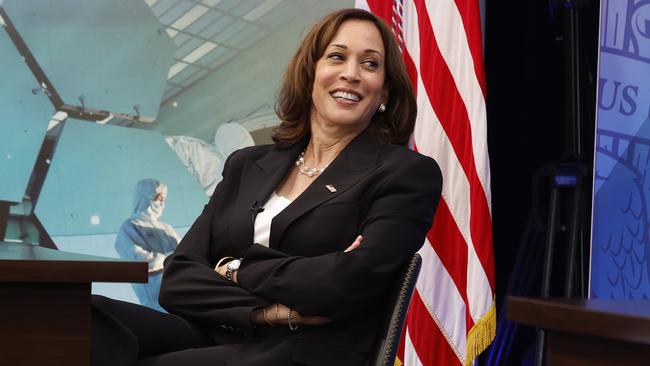
The White House also revealed US Peace Corps volunteers would “soon return to Fiji, Tonga, Samoa and Vanuatu”, while confirming a re-established US Agency for International Development would “take steps to expand its presence in the Pacific to improve close co-operation with its host country partners”.
China has increasingly flexed its muscles in the Pacific Islands, with Foreign Minister Wang Yi touring the Pacific in June in a bid to persuade 10 island nations to join a trade and security pact after penning a historic deal with Solomon Islands that would allow Beijing troops to be stationed in the region.
While failing to secure consensus of all targeted nations at the time, China signed individual accords with countries including Kiribati and Samoa.
It followed warnings from US Indo-Pacific co-ordinator Kurt Campbell earlier this year that the Pacific was the region most likely to witness a “strategic surprise” over the “next year or two”, flagging that the US needed to “step up its game” on engagement across the Indo-Pacific as China’s influence grew.
On Tuesday before the US package was announced, the Prime Minister said ensuring security in the region did not come down solely to “defence spending”.
“Our neighbours in the Pacific understand that climate change is a national security issue,” he said, following an address to the Sydney Energy Forum.
“They regard – just as the US does – it being at the centre of national security and I look forward to the discussions that I’ll have with the leaders in the Pacific.”
Mr Albanese, who is flying to Fiji on Wednesday, is expected to focus on Australia’s updated target of a 43 per cent cut to emissions on 2005 levels in talks with leaders behind closed doors on Thursday.
However, Labor’s allowance for more than 100 new coal and gas projects to go ahead is set to be a stumbling block.
Pacific Minister Pat Conroy said the coalmines would “go through normal environmental approvals”, and Australia’s 43 per cent emissions target was “absolutely credible”.
“The 43 per cent emissions reduction target will be across the whole economy and we‘re confident we’ve got policies in place to achieve that,” he said.
Senator Wong said fossil fuel projects would “be dealt with in accordance with Australian law”, but stressed Australia’s updated climate target had been met with a sense of “relief” by Pacific Island nations.
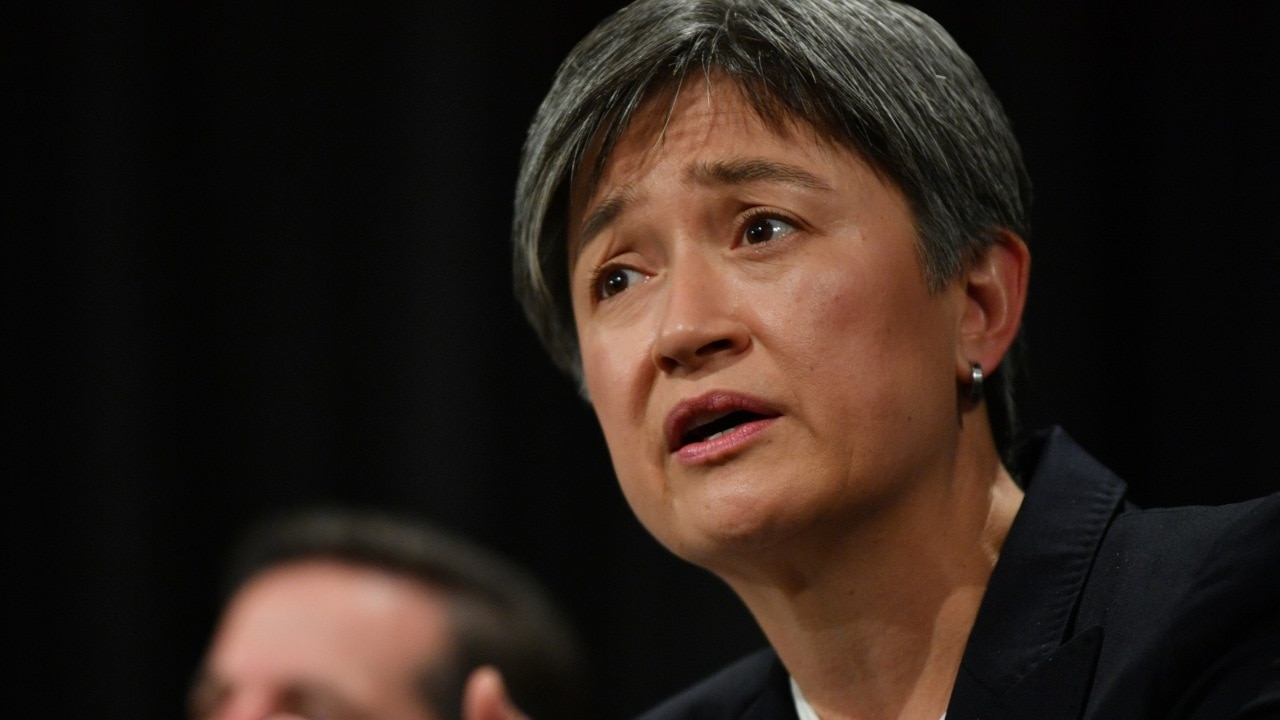
“In my bilaterals and my private discussions and in the public discussions I’ve had, there’s actually a sense of relief that finally Australia is prepared to actually do something,” she said.
“It’s completely legitimate for island states, which are already experiencing, and have for many years, the effects of climate change to urge us to do more. But given Australia has been so intransigent for the last decade, I think the view particularly has been relief.”
The Greens seized on the concerns of Pacific nations regarding new coal and gas projects and said Australia must “walk the talk” on its climate commitments.
“If we don’t change course on coal and gas, big talk will mean nothing to our regional neighbours,” Greens leader Adam Bandt said. “This is a time to rebuild trust in the region, not threaten their homes with more coal and gas.
“Pacific Island leaders know opening new coal and gas projects is a threat to their survival.”
PIF secretary-general Henry Puna said the world needed to urgently reduce its emissions by 45 per cent this decade and not lose sight of the climate emergency in the wake of events like Ukraine.
Mr Bainimarama said the issue of unity was key to this year’s forum, issuing the challenge for nations to “be assertive” rather than allowing others to dictate their fate, in a veiled swipe at China.
“How will we, the Pacific Islands Forum, choose to navigate these challenges and opportunities as we verge into the future?” he said in an address on Wednesday.
“Will we forge ahead together? Will we take individuals paths? Will we be assertive or will we leave it to others to decide our fate?”
It follows Kiribati pulling out of the PIF leader’s dialogue this week, prompting concerns the move would weaken the forum against emerging threats like China.
After discussion with Pacific Island leaders on Tuesday, Mr Conroy“wouldn’t say I’m more optimistic about Kiribati rejoining … I think it’s one where we have to let Kiribati go through their paces.
“We all have to work hard to support Kiribati deciding to rejoin the PIF,” he said on ABC.
More Coverage
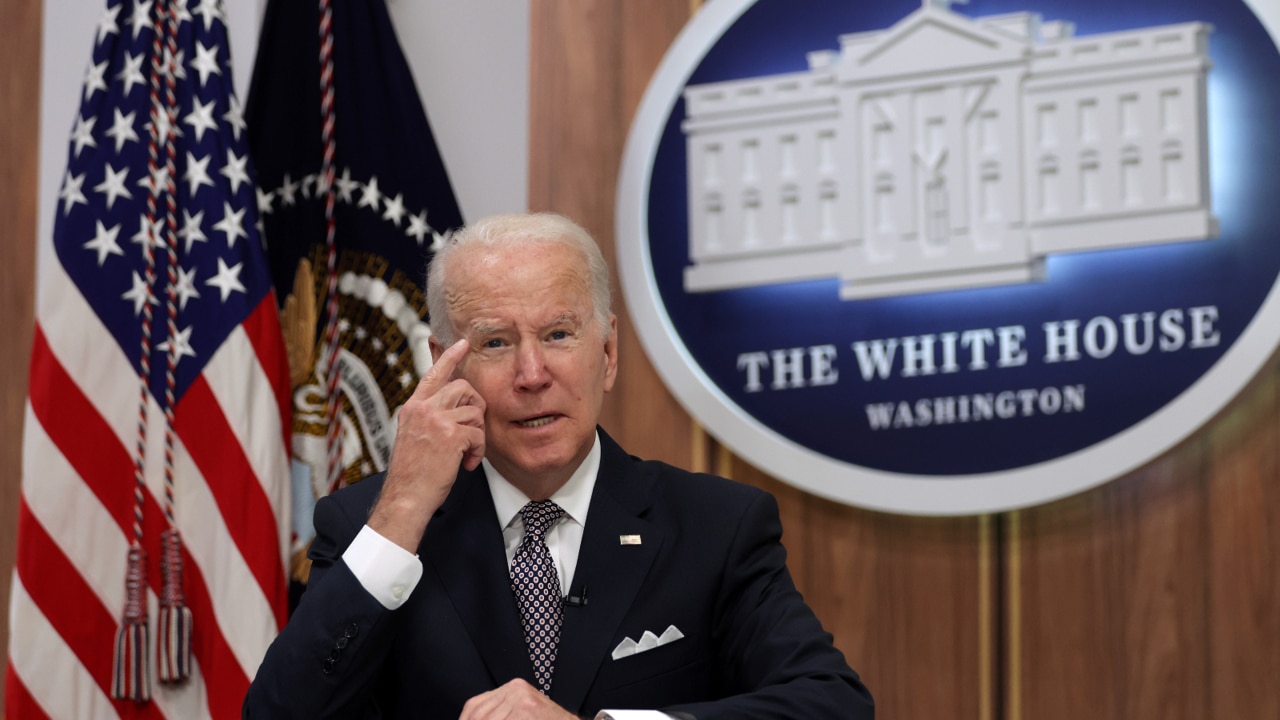




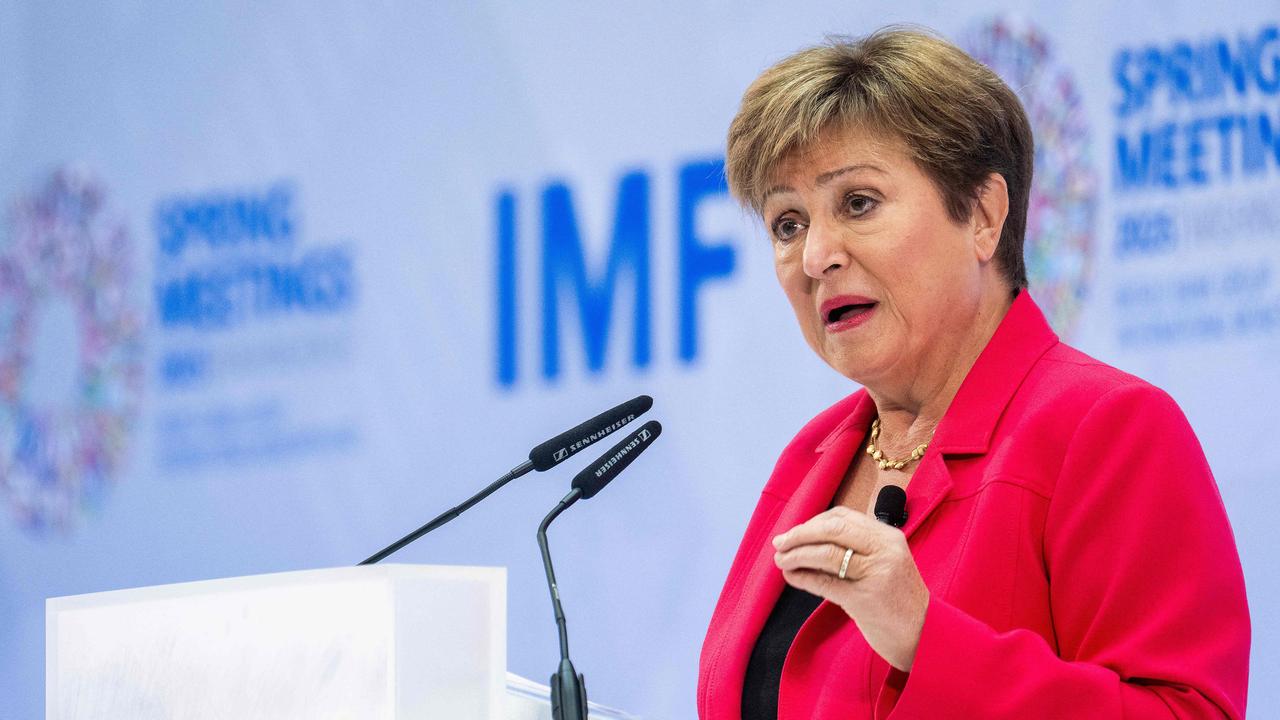
To join the conversation, please log in. Don't have an account? Register
Join the conversation, you are commenting as Logout